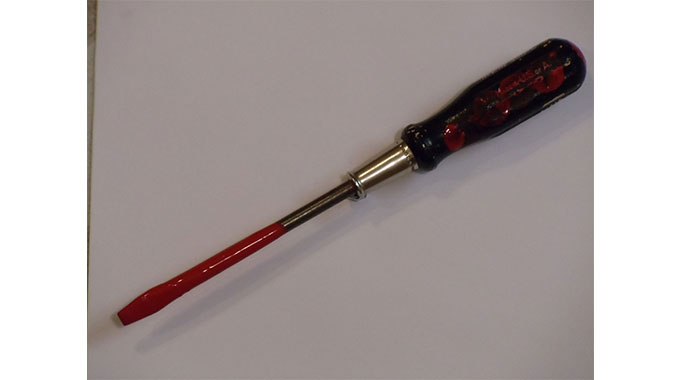Gwanda traders peg prices in forex

Sukulwenkosi Dube-Matutu, Gwanda Correspondent
RESIDENTS in Gwanda are feeling the pinch as most shops in the town have now pegged their prices in forex which they are struggling to access.
It is not any easier when buying from shops that accept payments in RTGS as the charges will be exorbitant when compared to buying in forex.
Residents mainly rely on small shops for most of their supplies with only a few big supermarkets available in town. Most traders in town buy their stock from Musina in South Africa and then demand forex payment only.
Mrs Sithokile Moyo said it had become very difficult to buy goods without forex. She said she could only buy groceries from supermarkets with RTGS.
“The pricing system which is being used in our town is unbearable. Most goods are now pegged in rands and those which are in RTGS are quite expensive. It now seems that those who can access rands or US dollars are the ones who can survive better and for us who don’t we really feel the pressure. I’m a civil servant and I don’t have any means of accessing forex. If only I could be paid in forex and be allowed to withdraw, then it could be better,” she said.
“In Gwanda, we mostly rely on small shops for most of our supplies and their prices are in forex. From clothing, vegetables, electricals we rely on small shops. As for our supermarkets that charge in RTGS the prices are too high. For example, a crate of eggs costs R50 in small shops but some supermarkets charge over $400. It’s now better to buy in rands but the problem is that some of us don’t have access to it.”
Mrs Moyo said vendors were also selling their products such as airtime in rands. She said even domestic workers are now demanding to be paid in forex. She said transporters had also pegged their prices in rands.
Mrs Moyo said small shops that were accepting RTGS wanted payment in cash which was difficult to access.
Another resident from the town, Mr Molvin Dube said the pricing system that was being used in the town was convenient for people earning forex or had access to it. He said most workers in the country were earning RTGS which meant there was a need for salaries to be in line with the pricing system.
“Government has to start subsidising salaries and pay workers in US dollars which they can further access from banks as prices are now pegged in forex. Workers could be using Nostro accounts right now but the problem is that they can’t access the money in forex and they have to change it to RTGS.
“In Gwanda residents can only use their Nostro accounts to buy building material from a few big shops as others don’t accept transfers. The forex pricing system is being implemented across the nation but in areas like Matabeleland South it’s worse because of our proximity to South Africa,” he said.
Mr Dube said since shops and institutions got the green light to charge in forex there was also a need for them to peg salaries in forex. He said it seems as though the ZW$ was the official currency only in payment of salaries but in pricing and accessing services it was not.
Mrs Fellunah Mswere who operates a clothing and grocery shop in the CBD said it was difficult to peg prices in RTGS as it meant that her business would collapse. She said most costs that she incurs to keep her business operational were in rands. Mrs Mswere said with the existing restrictions involved when travelling to South Africa they had to rely on haulage trucks to transport their stock from the neighbouring country.
She said truck drivers were now acting as middlemen and they were also demanding their payment in rands.
“It’s very difficult to peg prices in RTGS because our currency is very unstable and after selling goods one might run a loss and even fail to restock. We are now living in a society that has adopted the use of forex and as traders we also have to keep up. The costs we incur in running our business are mostly in rands.
“The rent I pay for this shop that I’m using is pegged in rands. I buy most of my stock from Musina in South Africa which means that I buy it in rands. Since I can’t go to Musina to buy my stock because of travel restrictions due to the Covid-19 pandemic I have to rely on a middleman to buy on my behalf and deliver and they charge us in rands. Having a middleman makes the whole process costly unlike when we were buying goods ourselves,” she said.
Ministry of Industry and Commerce Matabeleland South provincial deputy director, Mr Richmond Ncube said traders now preferred to base their pricing on a stable currency. He said after the US dollar the next stable currency was the rand and being in Matabeleland South most traders were buying their stock from South Africa. He said as a result most had pegged their prices in rands although some were taking advantage and charging goods which they would have obtained locally in forex in order to obtain value for them.
“Most shops throughout the province have pegged their prices in forex as traders prefer a stable currency. This is a problem as it affects Government workers, pensioners and all other workers that are paid in RTGS and vulnerable groups.
“While shops have been given the green light to peg their prices in forex it is illegal for them to refuse payments in bond notes as it is the official currency. Some traders however, tend to deliberately inflate their prices in RTGS which at the end of the day makes it cheaper for consumers to buy in forex,” he said.
Mr Ncube said traders have now realised that some people have access to forex and can afford to buy their products. He said this new system of pricing goods in forex had seen prices of goods remaining stable for the past month.
He said it has also reduced activities on the black market as people could now walk into shops and get their goods using forex at a fair rate.
“Even before the Covid-19 period traders had started having an appetite of pegging their prices in forex but during the pandemic it had intensified. If you visit financial institutions such as Mukuru you will find long queues of people waiting to receive money sent to them which will be mostly in rand form. There are a lot of rands which are circulating in the hands of people as free funds in this part of the country. That’s why you will realise that in most districts in the province most products are now pegged in rands. A significant number of people though, not all of them, are able to trade in rands,” he said. — @DubeMatutu











Comments